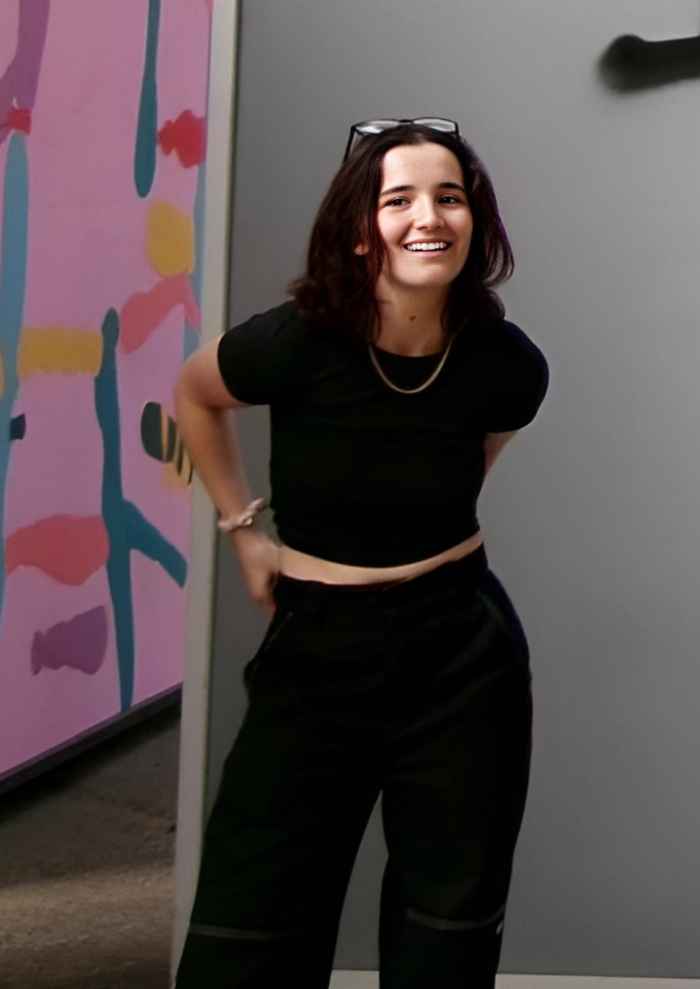"The fellowship really saved me, I can now concentrate better on my studies."
Students start AI Master's at the UvA with a fellowship from the Amsterdam University Fund
5 February 2024

Gardner's journey in artificial intelligence started long before the widespread popularity of tools like ChatGPT. She says, 'I read in a paper how artificial intelligence could be the key to a kind of utopia.' This sparked her interest in the field, leading her to study artificial intelligence.
Further specialization in AI
She ended up in Amsterdam, saying, 'I wanted to pursue an English-language study, and there are many opportunities in AI in Amsterdam.' After completing her Bachelor's in Artificial Intelligence at the Vrije Universiteit (VU), she chose to continue her studies at the UvA. 'I am particularly interested in the mathematics and algorithmic science behind artificial intelligence and its social implications,' she explains. This brought her to the University of Amsterdam, where she began her Master's programme with a Qualcomm Diversity in AI Fellowship.
Inclusion in the tech sector
The fellowships, sponsored by the American company Qualcomm, are aimed at increasing representation and participation by supporting promising researchers from underrepresented groups in artificial intelligence and machine learning. Gardner was selected for the fellowship due to her commitment to inclusion in the tech sector. She initiated Hack4Her, the first hackathon specifically for female students at the VU, and visits schools to introduce children from migrant backgrounds to AI.
'I especially love the mathematical and social aspects of artificial intelligence. I believe AI can complement us as humans, but it cannot replace us.'Isabella Gardner
Support and mentorship
With the funds from the fellowship, Gardner covers her tuition fees. 'I worked alongside my studies and my work for Hack4Her as a student assistant,' she says. 'Since I started the Master's I have not been able to work as much as I used to and I therefore had less money for tuition and rent. The fellowship really saved me: now I can focus better on my studies.' In addition to financial support, Qualcomm also provides mentoring to the students during their Master's programme.
Plans for the future
In addition to her Master's, Gardner's work in diversity and inclusion in the tech sector continues. She focuses on the fact that women are more likely to drop out of a tech study than men. 'That is a real problem. Women, for example, quit because of microaggressions (such as unpleasant comments) or outright intimidation.' To address this issue, she started a diversity committee within the student association at the VU. In the coming months, Gardner plans to further contribute to making the tech sector more inclusive, alongside writing her Master's thesis.
Would you also like to support young talent at the UvA? Please contact Juliette Nieuwland of the Amsterdam University Fund at j.m.m.nieuwland@uva.nl.